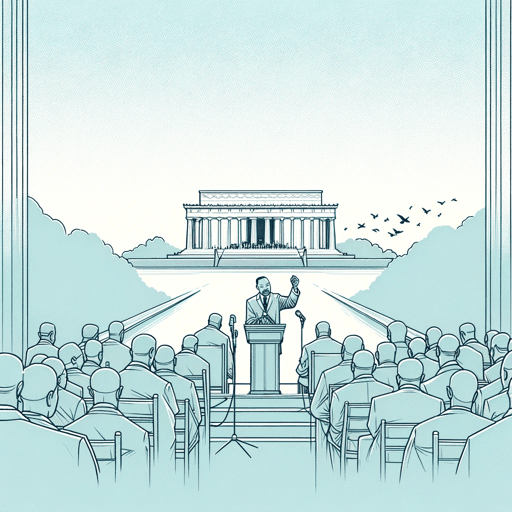68 pages • 2 hours read
Martin Luther King Jr.Why We Can't Wait
Nonfiction | Book | Adult | Published in 1964A modern alternative to SparkNotes and CliffsNotes, SuperSummary offers high-quality Study Guides with detailed chapter summaries and analysis of major themes, characters, and more.
Important Quotes
“Wherever there was hard work, dirty work, dangerous work—in the mines, on the docks, in the blistering foundries—Negroes had done more than their share.”
(Introduction, Page xiii)
An important purpose of King's writing is to prove that African-Americans have every right to agitate for their civil rights. This quote is an example of one of the ways he makes this argument, namely by pointing out their many contributions to American society and material prosperity.
“The war had been won but not a just peace. Equality had never arrived. Equality was a hundred years late.”
(Introduction, Page xiii)
An important aim of the book is to explain to the reader why African-Americans feel they should no longer wait for civil rights to be awarded gradually. In this quote, King expands the history of their struggle for equality by countering the idea that the Emancipation Proclamation, the official end to slavery in much of America, was complete freedom.
“Three hundred years of humiliation, abuse and deprivation cannot be expected to find voice in a whisper. The storm clouds did not release a ‘gentle rain from heaven,’ but a whirlwind, which [has] not yet spent its force or attained its full momentum.”
(Chapter 1: “The Negro Revolution—Why 1963?”, Page 3)
King's aim in this quote is twofold. As he admits elsewhere, there was a lull in important actions after the Birmingham protests. This quote makes it clear that this lull is only temporary because full inequality has not been achieved. The second aim of the quote is to counter criticisms of the dramatic, large-scale nature of the protests. King's argument in this quote is that the intensity of the protests is appropriate given the intensity of the oppression African-Americans have suffered.
Related Titles
By Martin Luther King Jr.

A Testament of Hope
Martin Luther King Jr.

I Have A Dream Speech
Martin Luther King Jr.

I've Been to the Mountaintop
Martin Luther King Jr.

Letter From Birmingham Jail
Martin Luther King Jr.

Stride Toward Freedom
Martin Luther King Jr.

